There are costs including and beyond treatment options that you may not have planned for. The financial impact of a cancer diagnosis does not have to be a major source of stress and anxiety for you.

It can be difficult to discuss the cost of cancer treatment, but it is important to address. Talking about costs will not make your healthcare team see you as bothersome or cause them to delay treatment or offer a less effective treatment. They will be able to help you understand what to expect and, if needed, seek assistance.
With everything else going on, consider asking someone you trust to help manage this aspect of care for you since it can be daunting.
Advocacy Groups and Foundations
It is important to know there are resources and support available to help with many costs associated with a cancer diagnosis. There are many resources dedicated to patient support for medication costs, such as:
ZERO360
www.zerocancer.org
1-844-244-1309
Cancer Financial Assistance Coalition (CFAC)
www.cancerfac.org
Cancer.net's Patient Guide, "Managing the Cost of
Cancer Care"
www.cancer.net
1-888-651-3038
CancerCare®
www.cancercare.org
1-800-813-4673
Patient Access Network Foundation
www.panfoundation.org
1-866-316-7263
Patient Advocate Foundation
www.patientadvocate.org
1-800-532-5274
Government Resources*
Treatments may also be covered by different types of Medicare plans. Patients requiring financial assistance may be eligible for a variety of cost-support options, including:
MEDICARE EXTRA HELP
Low-income subsidy
- Helps people with limited income and resources pay Medicare prescription drug costs. This program is also called “Extra Help”. Those who qualify can receive help paying the drug plan premium, deductible, coinsurance, and co-payments, and have no gap in coverage.†
- Eligible patients may be able to access brand-name drugs for less than $10 per month.
MEDICARE SAVINGS PROGRAM
Qualified Medicare beneficiary
- One of the Medicare Savings Programs available to low-income Medicare beneficiaries who meet the eligibility criteria.
- Helps pay for Part A and/or Part B premiums, deductibles, coinsurance, and co-payments, and thus may help with the out-of-pocket costs associated with Medicare Part B drugs.‡
STATE PHARMACEUTICAL ASSISTANCE PROGRAMS (SPAPs)§
- States can offer help paying drug plan premiums and/or other drug costs.
- Eligibility may be based on financial need, age, or medical condition. Benefits may vary between programs.||
For more information about these programs, visit www.medicare.gov.
US DEPARTMENT OF VETERANS AFFAIRS (VA)

Veterans with prostate cancer may be eligible for US Department of Veterans Affairs (VA) benefits, including healthcare and disability compensation. To get more information on veteran services and resources, download this Veteran’s Guide brochure.
Pharmaceutical Manufacturers
Individual manufacturers may make medication co-pay assistance programs available to you if you have commercial insurance and meet other eligibility criteria. These programs offer support through various options, including:
- Assessing your insurance benefits to help you understand any potential out-of-pocket expenses
- Providing information on cost support options, such as instant savings programs or patient assistance programs, as appropriate
- Providing additional support, such as ongoing cost support status updates, prescription reminders, and educational materials
- Coordinating with your local pharmacy or specialty pharmacy to arrange for efficient prescription pick-up or drop-off
For more information about individual manufacturer assistance programs, talk to your physician or connect with an advocacy group via the Advocacy Connector.
Independent Foundations and Organizations*
CHRONIC DISEASE FUND (CDF)
- Co-pay assistance for FDA-approved specialty medications
- Funds are available for specific disease states that may have different eligibility guidelines
- Find out the current status of funds and more information at www.mygooddays.org
THE PATIENT ADVOCATE FOUNDATION (PAF) CO-PAY RELIEF (CPR) PROGRAM
- Helps with co-payments, co-insurance and deductibles
- Eligibility is based on income
CANCERCARE CO-PAYMENT ASSISTANCE FOUNDATION (CCAF)
- Member of Cancer Financial Assistance Coalition (CFAC)
- Helps cancer patients afford co-payments for chemotherapy and targeted drugs
- Find out the current status of funds and more information at www.copays.org
* The information provided represents no statement, promise, or guarantee by Janssen Biotech, Inc., concerning levels of reimbursement, payment or charge. Please consult your payer organization with regard to local or actual coverage, reimbursement policies, and determination processes. Information is subject to change without notice. Nothing herein may be construed as an endorsement, approval, recommendation, representation, or warranty of any kind by any plan or insurer referenced herein.
† Centers for Medicare & Medicaid Services. Medicare Prescription Drug Manual, Chapter 13. Premium and Cost-Sharing Subsidies for Low-Income Individuals. Accessed June 13, 2024. https://www.cms.gov/Medicare/Prescription-Drug-Coverage/PrescriptionDrugCovContra/Downloads/Chapter-13-Premium-and-Cost-Sharing-Subsidies-for-Low-Income-Individuals-v09-14-2018.pdf
‡ Centers for Medicare & Medicaid Services. Medicare Savings Programs. Accessed March 18, 2022. https://www.medicare.gov/your-medicare-costs/get-help-paying-costs/medicare-savings-programs#collapse-2625
§ SPAPs are not limited to Medicare Part D. Note that not every SPAP is a Medicare Part D participant.
|| Centers for Medicare and Medicaid. State Pharmaceutical Assistance Programs. Accessed June 13, 2024. https://www.medicare.gov/pharmaceutical-assistance-program/state-programs.aspx
Planning for Expenses
Take some time to prepare a budget and determine what support you might need. Your personal costs will depend on several factors, including the type of advanced prostate cancer treatment you choose and your health insurance coverage. Many cancer support groups offer financial counseling and advice on coping with the stresses that come with the financial burden. A good place to start is the CancerCare helpline: 800‑813‑HOPE (4673).
Some costs might be more obvious than others. Below are some costs to consider:
Doctor’s appointments
If you have a co-pay for each visit to the doctor and your visits to the doctor increase, your co-payments may add up. Lab tests and radiology tests may require separate payment. If you find you cannot manage your frequent or costly appointment co-pays, talk to your physician and their office may consider waiving the costs of some of your co-pays.
Treatments and procedures
There may be costs for procedures and other treatments. Certain treatments, like radiation therapy, require daily visits for a set time period. While you most likely will not have a co-pay for each visit, you may be responsible for a portion of the total cost with a fee, such as co-insurance. If you are continuing to work through treatment, consider the time away from your job and the potential impact on your paycheck.
Medications
Many advanced prostate cancer treatments can come with out-of-pocket co-payments. Fortunately, there are many resources available, such as the ZERO-PAN Co-Pay Assistance Program, that can help to offset these costs. Talk with your healthcare team so you can anticipate costs and how you will manage these new costs. Many pharmaceutical companies are committed to providing access to medicines for uninsured patients who lack the financial resources to pay for certain donated medicines, so be sure to check websites for medications prescribed to you for such resources.
Living expenses
Added expenses like co-pays and out-of-pocket items begin to add up, and this can impact the activities you normally do. Consider how much your regular living expenses will be impacted by the cost of treatment.
Transportation and travel
Consider the expenses for traveling to and from the doctor's office. Factor in the cost of gas and, if applicable, parking. Depending on where you decide to receive treatment, you may also need to pay for lodging away from home.
Employment, legal, and financial issues
These costs may arise if you need professional guidance on employment, legal, or financial issues related to your prostate cancer diagnosis. This may involve addressing loss of wages, learning about employment rights under the law, figuring out medical expenses during income tax filing, or writing a will. For making decisions after a loved one has passed away, the American Cancer Society provides financial guidance for coping with the loss of a loved one.
Caregiving, at-home care, and long-term care
No one wants to talk about it, but you may find that at some point you need extra help at home. A person can be hired to prepare meals, drive you to medical appointments or assist with personal care.
Thinking about all of these potential costs may make you feel anxious about the future. However, local and national financial resources or a representative from your doctor’s office, and/or health insurance provider can help you better understand these costs. Again, the CancerCare helpline (800‑813‑4673) is a great place to start the conversation.





627f.png?itok=PoTlGU5W)